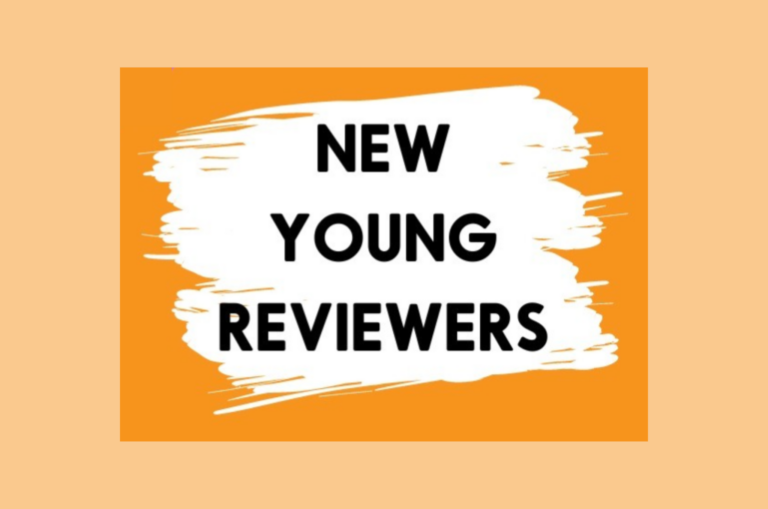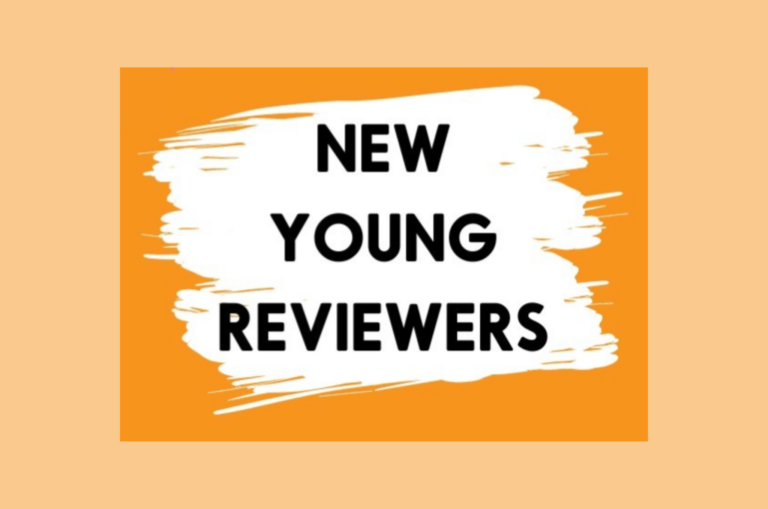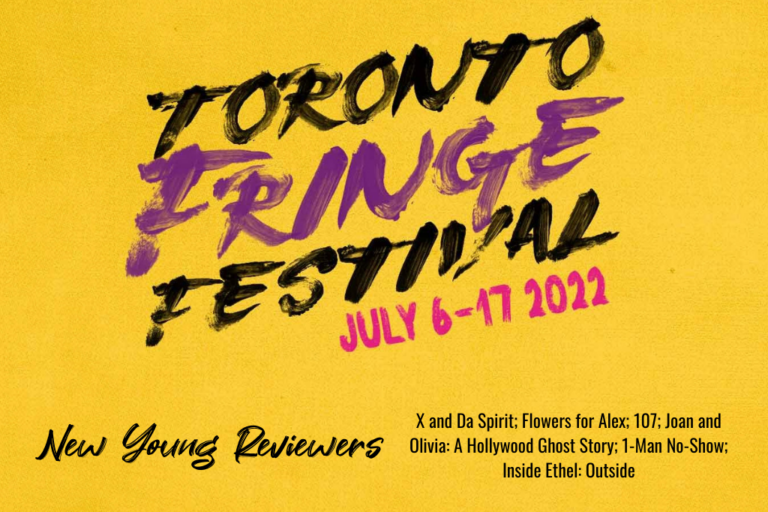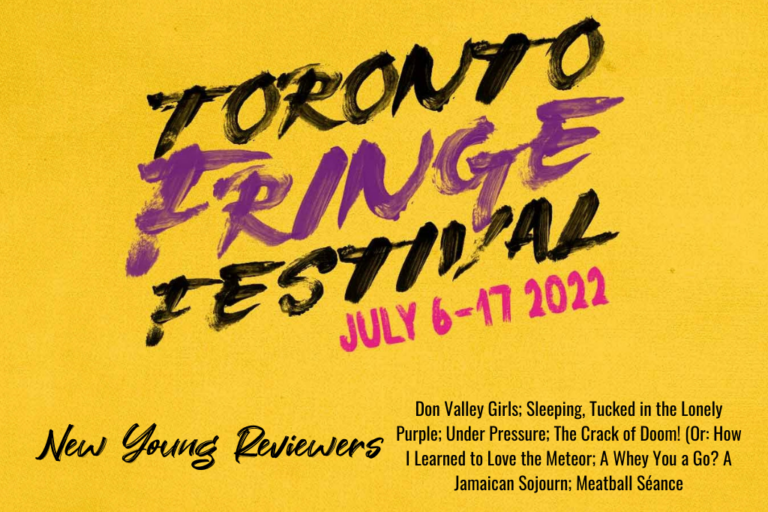The Second Next Stage 2022 New Young Reviewers Roundup
After online workshops and early access to shows shows, the first round of reviews from the Next Stage New Young Reviewers Program (from Toronto Fringe) are here!
Led by Signy Lynch (Contemporary Theatre Review, Canadian Theatre Review, Intermission Magazine) and Stephanie Fung (Kingston Theatre Alliance, Canadian Theatre Review, Single Thread Theatre), the New Young Reviewers Program is a workshop series and writing group for emerging theatre and performance reviewers across Canada. Open to participants ages 15 and up, this program introduces participants to the basics of theatre reviewing, helping them develop responses to Toronto Fringe and Next Stage performances. With support from the Jon Kaplan Legacy Fund, the program encourages participants to explore emerging creative approaches to criticism and to begin to define themselves as critics and reviewers.
Look below to read the first two reviews from the 2022 Next Stage New Young Reviewers Program!
Rabbits, Cards, and Zoom Chats: Embracing the Digital in Saving Wonderland
Reviewed by Holly Hebert and Micah Chu


Welcome to Wonderland. Actually, welcome back.
This time, Alice returns on Zoom with David Carpenter/Gamiotics Studios’ immersive and digital Saving Wonderland. Spectators and participants are directly addressed by the cast as Alice, as they’ve now become her. The beloved characters of Wonderland guide the audience through polls and puzzles which affect the story’s progression.
We’re welcomed by the White Rabbit (Jacob Thompson) and Cheshire Cat (Kim Morgan Dean), who wake us up and reveal how Wonderland has been stuck in a time loop which becomes shorter each time it restarts. The audience must find gears — which only Alice can touch — to fix the pocket watch that controls Wonderland’s time loop.
We fumble and bumble
We all come to life
We mumble and stumble
To the young one’s delight
But when looking within,
Told in A fortnight
It becomes quite apparent,
Something just isn’t right!
Interaction via Zoom’s chat function, the responses to riddles and clues, and completing electronic puzzles to retrieve gears elicits the audience agency one seeks in an immersive experience. This form of exchange is also an intelligent way to keep audience members engaged through virtual theatre on a platform where keeping from the distractions around you has become a feat of its own.
Take the incorporation of the amazing technological elements. The editing by Orsolya Szánthó was superb and created a world consistent, intriguing, and with the atmosphere of a steampunk aesthetic. Using visual and audio effects, Wonderland was fully transformed into a place on the brink of time-controlled disaster. The glitching performances and ticking watches allowed the audience to fall into a story of Wonderland once again.
The number of different storylines that could have taken shape is part of the allure of this show. With the ability to change the ending, audience members are given an unusual amount of power. They actually get to choose the path Alice takes – who they see, what clue they get, the information they obtain. As time goes on though, the chance to save Wonderland is slipping away and an audience must begin to choose characters to see over the other when the gameplay restarts and the time loops shrink. However, the unfortunate result of this is character development and narrative falling short.
It’s a feast! No, a party!
Or is it a ball?
We’ll talK all around
This table is all.
Nothing is wrong
Or right as it seems
Or is it right and left?
I can’t really glean.
Take our words
At facE-value, they say
Or is it head, palm, and eye?
Have I led you astray?
Some character growth is apparent — seen in the Red Queen (Carlina Parker) whose perspective on Alice changes throughout the show, moving from threats of beheading to begrudging acceptance — but what stands out more than anything is the characterizations the actors illustrate. They maintain the distinct and all-too-familiar traits from the initial Alice in Wonderland, but put their own spin on things to give the characters a certain authenticity.
With a strong sense of urgency, Thompson and Dean have fine-tuned their balancing act of the calm vs. the storm, adding wit and humour to the absurdity that is Alice in Wonderland. From the White Queen’s (Pooya Mohseni) poshness to the frightful unpleasantry of the Red, their spin on character traits come from Mosheni’s arrogance and Parker’s eventual concession. The caterpillar (Lynn Craig) speaks in riddles with a rather buoyant demeanour and exceptional fun occupies the tea party in which the Mad Hatter (Michael Indeglio) and the March Hare (Michael Pilato) deliver on all accords. They nonsensically make sense – their gibberish, banter, voice play, and camaraderie add to the show’s quality.
You’ve seen us before
You’ll see Us again
Still one and the same
But not from then when
Mad like a hatter
And Proud like a queen
Visit us once more
In this happy new scene
However, the puzzles encountered at the tea party are the most complicated, in addition to the puzzles being somewhat difficult overall. These challenges, in tandem with Alice’s objectives and stakes of Wonderland, build an undeniable pressure that makes the theatre piece feel like a large game. Technical disruptions alleviated the tension in small waves though, impacting the modes of collaboration necessary for multi-player tasks.
Did you catch our hints?
Or clues?
Or rather confizzling stints?
Or a washed up idea
In the last leg of the sprint?
It’s asking you to slow
And calm and look to see
To open your eyes
And WAKE UP prithee!
Yes, WAKE UP, just as Alice does in Saving Wonderland, and catch the complex poems and rhymes appearing in the production. Running until January 30th, this show is sure to keep an audience on high alert and mystified the whole 75 minutes.
Making the Most of Digital Space: The Wins and Pitfalls of Gather.town and Zoom in The Complex
Reviewed by Riley Kelk

The Complex is an interactive digital theatre experience that takes place on Gather.town, a video conferencing platform that creates a digital space for participants to move around, and Zoom Webinar. The show has a very strong and compelling eco-dystopian aesthetic, though it’s sometimes hindered by certain mechanics. It is set in a future where environmental devastation has caused humanity to create a biome for a limited number of survivors to live in. The audience must choose a leader for this new society from one of five Prospects. Gather.town participants are called the Community, and walk around the virtual space using avatars like in a video game, interacting with the environment and talking to the actors and other audience members. Zoom Webinar participants are called the Chamber, and interact with the show only through the chat and polls. The two experiences, while concurrent, are separate for good chunks of the show. I experienced the show as a member of the Chamber, so I will mostly be talking about the Zoom platform.
In the Chamber, there is a Pollster who asks questions to the audience through the chat. There is also a live host. The basic task of the Chamber is to vote on which Prospect to get more information on or to eliminate. You are given two minutes to discuss in the chat before you must vote in a poll. I ran into two problems with this format. One, I could not remember the characters names. The Prospects introduce themselves in political speeches, but there is no visual reminder after that of who is who. I figured it out more as we went along, but especially in the beginning, I didn’t know who I was voting for.
That didn’t always matter, because more than half the time the poll would close and disappear before I was done reading it. I assume they wanted people to make quick decisions, but it felt pretty annoying, especially because they wanted everyone to try and come to a consensus. The host tells us that if we all vote for the same person, we will be rewarded, though it’s not exactly clear how. Whether or not you succeed will depend on who you’re watching with, but given the constraints of the chat, the time limit, and the limited information you have to work with, I think this would be difficult to achieve. The audience is asked several times what values they want to bring into this new society. I want to know why consensus is the value this show chose to emphasize. Full consensus would require far more extensive discussion, compromise, and information. The show feels like more of a test to see if people are willing to put aside their own opinions for the supposed benefit of the group. In a show about political values and collaborative decision making, I don’t know that I would agree that total consensus is the most important thing for the success of a new society.
There are a few ways you are given more information about a Prospect beyond what they say in speeches. Community members can talk to the Prospects directly and find hidden letters in the Gather.town space. Chamber members were given video and audio clips, as well as a redacted email from a Prospect’s family member. There is some amount of reveal of people’s motivations and why they might or might not be suited to this position, but there was never a moment where everything clicked together for me. There was no satisfying “aha!” moment of piecing together a mystery. I think the audience is intentionally kept in the dark about a lot of things but it made it harder for me to become invested in the characters and the overall narrative. Not to mention some audio issues that made everything even more obtuse.
Perhaps the show is better experienced on the Gather.town side. I imagine it would certainly feel more immersive. The element of exploration, plus the chance to have actual verbal conversations sound like they would be far more engaging. In Zoom, it is easy to ignore your invitation to participate by simply not responding to the prompts, or to feel left behind or confused if the pace is moving too fast for you.
I think it’s really great that this show tries to accommodate different levels of interaction. Many people are not comfortable walking around a virtual space and talking to actors directly. However, I wonder if the show might have been better served artistically to focus solely on fleshing out one experience or the other. On the Zoom side, I felt there was some dead time, especially in the beginning. Having simultaneous platforms is an interesting idea, I’m just not sure if they came together as whole and equal experiences.
The Complex does some interesting and innovative things in the realm of interactive digital experiences. I enjoyed the performances of the actors, and how they adapted to the audience’s choices, and the bits of improvised conversation with Gather.town participants that I got to see from the Zoom side. I would love to see further evolutions of this dual platform concept in the future.
Next Stage Theatre Festival tickets are available here. You can find out more about Next Stage 2022 here.












Comments